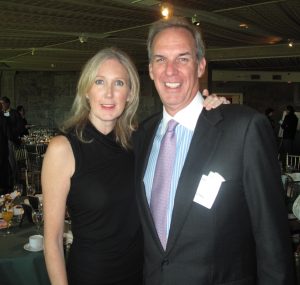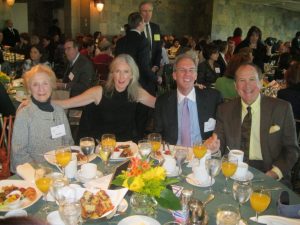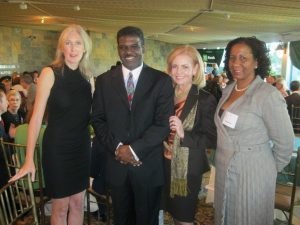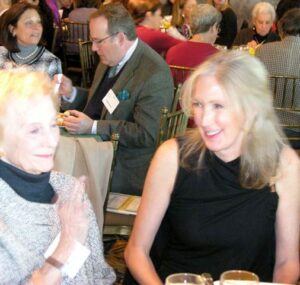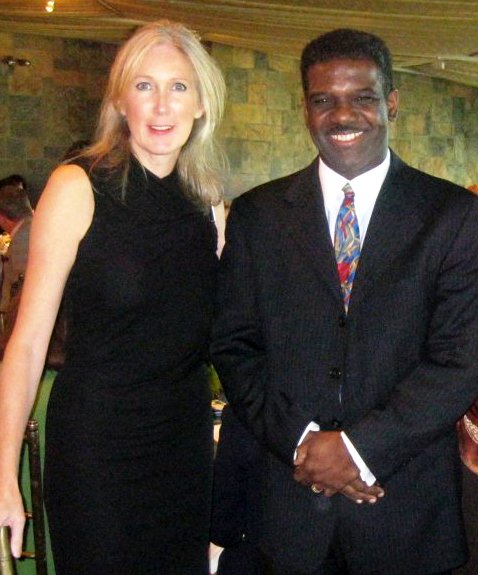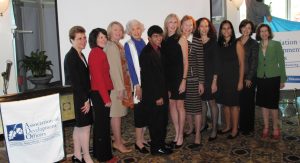
Members of dozens of nonprofits like the Jay Heritage Center (JHC) attended the highly successful Association of Development Officers (ADO) Philanthropy Awards breakfast on Friday November 12, 2010. JHC Board President Suzanne Clary accepted the award for Outstanding Nonprofit Board Member and acknowledged the help of her colleagues and partner organizations in improving the Jay Estate in Rye. “The award I am receiving today is especially meaningful to me because it underscores the importance of being a productive, engaged, and innovative board member. But I cannot accept it without sharing credit with my team…There’s a good reason why even a superhero like Wonder Woman joined the Justice League – no one can do it all alone. The accomplishments of many people, all of us, not just one, make the difference.”
In accepting the award, Clary explained why she and others join not-for-profit boards. “It starts with a passion for serving others. To educate. For us, it is the need to tell a compelling story through the eyes of many people.” At the Jay Estate, that story is the prevalence and injustice of slavery in early America and John Jay’s role in making New York the first state to make slavery illegal.
Clary thanked Con Edison for being a longstanding, generous partner in philanthropy and funding JHC programs about environmental stewardship and sustainability. The 1838 Jay Mansion has the distinction of being served by a fully operational geothermal heating and cooling pump system – it is the oldest National Historic Landmark structure in New York State with this kind of green technology. Many programs at the Jay Estate are free thanks to Con Edison – JHC raises all additional monies privately or through grants with no cost to taxpayers. JHC receives no funding from Westchester County, New York State or the City of Rye.
Clary also had the chance to talk to Westchester County’s Chairman of the the Board of Legislators, Ken Jenkins, about making the historic Jay Estate which is on the African American Heritage Trail and a Hudson River Valley National Heritage Area site more accessible to visitors. As it stands, many important African American heritage sites in Westchester are not serviced by public transportation. Clary suggested the implementation of a cooperative shuttlebus route along the Boston Post Road reusing an existing County paratransit bus route.
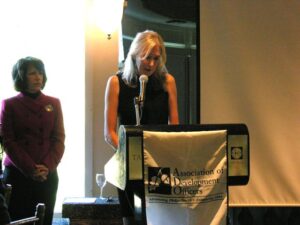
The event was a great opportunity for like-minded professionals and volunteers to exchange ideas about improving our community through giving and education.
